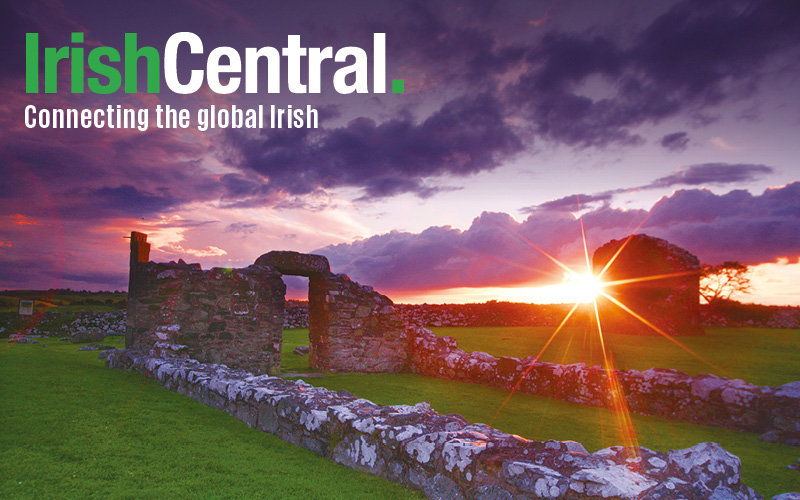For many people who have been infected by the genealogy bug, knowing Ireland as a place from whence our ancestors originated is not enough. Genealogists and family historians want an exact place of birth. We want to walk the same land and visit the church where those who came before us walked and worshipped. One of the most, if not the most difficult problems for Americans with Irish ancestry is determining where in ireland their ancestors originated. As the grandson of John and Anna McManus O'Neil, I asked that question myself. Unfortunately, for people searching for their ancestors prior to the 1920's there are a number of reasons for hitting the proverbial "brick wall" when searching for their family's place of origin in Ireland. The use of Christian names creates a problem in identifying your ancestor. In a sampling of 5,247 men and 5,247 women who received marriage dispensations in the Diocese of Brooklyn between 1859 and 1866, the following names were the most common for men (in order): John, Patrick, James, Thomas, and William. For women: Mary, Margaret, Catherine, Bridget and Ann/Anne/Anna. So, if you are looking for a John and Mary Kelly - good luck! As Murphys, McPaddens, O'Briens and Kellys swelled America's cities after 1850, those cities if they did not have "Directories" began publishing that handy tool annually. Directories usually list name, address, and occupation of the residents of that particular locality. Of course, not everyone is listed. Since many of the Irish were not trained in any particular occupation or trade, they took any job they could find. Many men would be listed in the directory as "Laborer". Think of how many John Kellys would be listed as laborer. Some cities for some time did not list laborer as an occupation, thereby deleting laborers' names. Thousands of women worked as "Domestic Servants", but women were usually not listed unless they were widows: "Kelly, Mary - widow of John - 10 Washington St." Some women might be listed if they ran a boarding house. Records in the U.S. are not uniform. For example, birth, death, and marriage (Vital Records) certificates vary from one city to the next. Many times you will not find a specific place of birth on those records. The same is true for Naturalization records(I have seen specific places of birth in pre-1840 Naturalization records from New York). Naturalizations were not always the federal government's responsibility. One could become an American citizen in a federal, state, county or city court. This was true up until about the mid-1920's. Until the first decade of the twentieth century many courts also required only country of birth on a petition for Naturalization. Federal census records did not ask for a specific city or town, but rather country of birth for foreign born residents. This holds true for passenger arrival lists until the end of the 19th century and early 20th century. If you know the date of death of your Irish-born ancestor you might try the local newspaper for a death and/or obituary notice. Many old newspapers have been microfilmed and some have had their births, deaths and marriages abstracted, usually for genealogical researchers. You may be surprised to read that your ancestor was a native of a particular parish and country. Another source worth examining is the tombstone. My great-great-great-grandmother died in Brooklyn in 1861 and her tombstone listed the parish and country of her birth in Ireland. There are other sources which must be searched when trying to pinpoint your ancestor's place of origin. There is one piece of advice I can not impress upon readers enough - do not go to Ireland searching for your ancestors before you do your homework here. You may have a great time as a tourist - but as a family historian, you will be greatly disappointed. Instead try to learn as much as you can about your family here in the U.S. First, begin by speaking with older relatives: parents, grandparents, aunts, uncles, etc. They may not know as much as you think they should. Some may withhold information because they feel that it is none of your business (don't be surprised if that happens). Your local public library or historical society should be helpful. Interest in genealogy has grown so rapidly in the last two decades that it would be unusual for a library not to have something for the beginner. You may need to contact offices in the place where your ancestors lived many years ago. There are reference books to help the genealogist or family historian. Do not overlook the telephone book. If you are on-line there are thousands of websites to choose from to help you in your research. For example, the National Archives have branches throughout the country. Those branch offices have Census records, Naturalization papers, Passenger Arrivals and many other sources to choose from. For those on-line, the address used to find the nearest office to your home is: www.NARA.gov. You can also check out the website of the Church of Jesus Christ of the Latter-Day Saints, also known as the Mormons, at www.familysearch.com. One thing genealogy teaches you is patience. It took me ten years to find one ancestor. Once you are bitten, you will develop the greatest addiction there is. Not all of your family and friends will be interested in your pursuit. Don't be surprised if people start excusing themselves from your company as soon as you start talking about your latest genealogical find. Pay no attention, continue your search and leave no stone unturned!




Comments